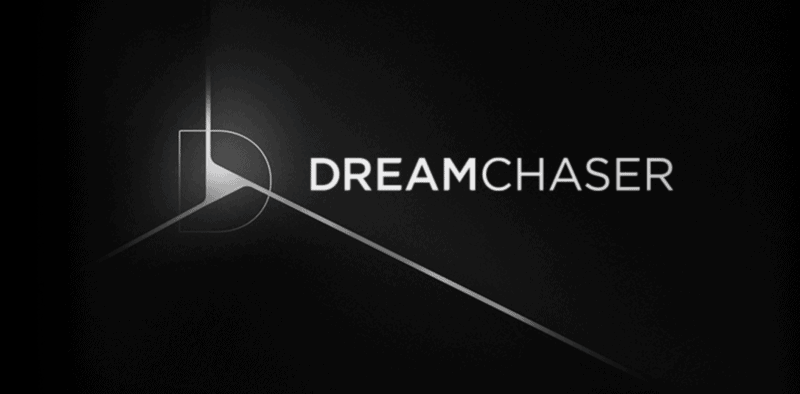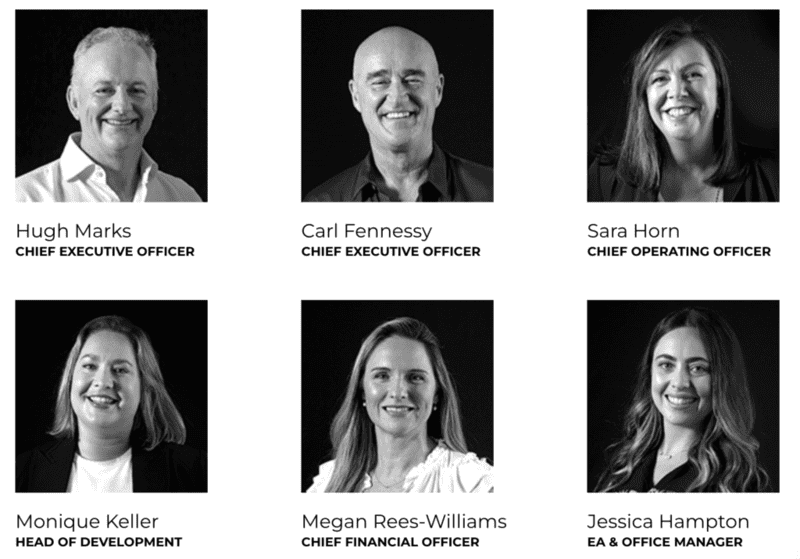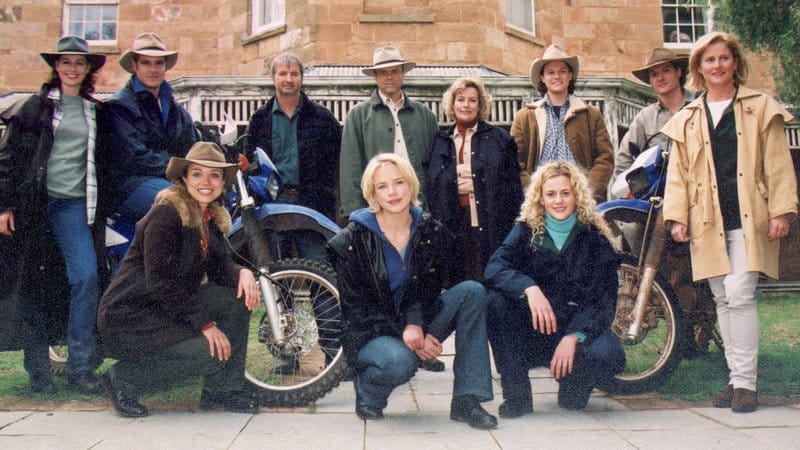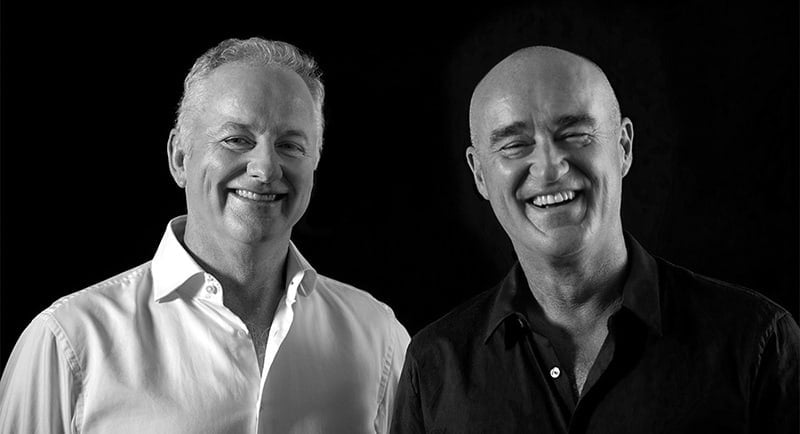The launch of Dreamchaser earlier this year answered a few questions many people had in the television industry.
With the chief executives of Nine Entertainment and Endemol Shine Australia all stepping down in 2020, there was much anticipation about what Hugh Marks and the Fennessy brothers Carl and Mark might do next.
Mark Fennessy officially revealed his new venture Helium to Mediaweek last October, exactly 12 months after stepping away from Endemol Shine Australia. Earlier this year Mediaweek reported on the launch of Dreamchaser, a full-service production and distribution studio based in Sydney, with Hugh Marks and Carl Fennessy as joint chief executives.
As the business gets close to making its first production announcements, Mediaweek spoke with the co-founders about their business model and how the growth of streaming services provides opportunities and challenges.

Dreamchaser launch and model
Hugh Marks started the conversation with comments about the timing of the launch: “The world has changed with so many opportunities that creatives now have to realise stories. Even in the past 12 months things have completely changed and will probably change even more over the next 12 months. It is an amazing time to be in this business and a great time for Carl and I to be exploring that world.”
Carl Fennessy discussed their business model. “It is very similar to how a US studio model works. We are an enabler of producers. A combination of sales, development, and we are here to invest in Australian creative ideas, production and distribution.
“We are completely independent and can partner with anybody across multiple genres. We have a stable of producers working with us on a partnership basis.
“We expect to be making a statement about our starting line-up very soon.”
Backing from Endeavour Content
Fennessy: “Our colleagues at Endeavour have been terrific. Endeavour was spun out of the William Morris Endeavour Agency about five years ago. They were the content production arm for what was WME and are now one of the fastest-rising independent studios in the world. They work predominantly in scripted, although they are starting to build out their non-scripted offering as well.
“You would know them from shows like Anatomy of a Scandal, Tokyo Vice, Severence – some of the biggest global shows on the streaming services. They are a great partner for us and will help us identify new Australian projects and hopefully get them into the global SVOD space.”
Marks: “Endeavour is expanding globally and doing similar things they are doing with us in other markets. They have a business in the UK they have invested in called The Story Collective and also one in Canada called Blink. What they have recognised is that great content can come from anywhere in the world.
“Endeavour are great connectors who deal regularly with every major buyer on a daily basis means we are connected into a global infrastructure which is exactly what we needed to be able to realise for our vision of the business.”
Dreamchaser commissions
Marks noted there remains the possibility some programs might be market-specific commissions. “At Dreamchaser we expect to do an even mix of scripted, premium factual and entertainment. Who the buyer is will depend on which genre you are playing in. When it comes to scripted production it is going into a more global on-demand environment. In premium factual and entertainment you will continue to see shows that are commissioned for specific markets.
“Anything and everything is possible which makes it a very interesting and challenging time.”
Dreamchaser will have exclusivity deals with producers. Fennessy: “Our in-house producers will be exclusive, but our external partners will likely work with us on a project-by-project basis. With the in-house producers we are investing in them on a partnership basis to create their own labels sitting under the Dreamchaser umbrella.
Marks: “Another way of looking at that is we are starting up five or six production businesses under the umbrella of Dreamchaser.”
Can FTA TV still compete with streaming platforms?
Marks: “The FTA model is changing too as it is for everyone in the media business. When FTA commissions a program it will have a FTA window, a catch-up window and then sit on that service for maybe 20 years and create value for them.
“In the scripted space when we pitch to Netflix, Amazon, HBO Max, AMC International or Disney the old route was co-producing between Australia and the UK or Australia and Canada. What Covid changed was the idea that good content comes exclusively out of certain markets. There is now a recognition content can come from a broader range of people.
“FTA will continue to innovate and there will be shows we will make for them.”
The Dreamchaser co-founders are hands-on
Marks: “We sit very close to each other in the office and we are enjoying the opportunity to work together. We seem to have very complementary skills and the balance of those skills will shift depending on what it is that we are looking at. People we work with will get the benefit of those skills and our experience and people are finding that a rewarding experience.”
Fennessy: “We are in the office all day every day and are very much hands-on. We have been talking about this idea on and off for a couple of years. We saw an opportunity in the marketplace and the timing is right now for both of us. We have a terrific team with us including Sara Horn as chief operating officer (ex-Endemol Shine Australia), Megan Rees-Williams as chief financial officer (also ex-Endemol Shine Australia) and Monique Keller as the head of development (ex-Audible and Fremantle).”

The Dreamchaser team
Marks: “Being much closer to what happens on a day-to-day basis is for me is far more invigorating than being a bit more removed from it. My time at Nine was great and we were able to do some fantastic things for the business to set it up for the future.
“It good to be working on the content at a time when content is not only king, but every card in the deck.
“We’ve only been in business six weeks but the number of things we have covered has been extraordinary.”
Both Marks and Fennessy said they will be involved in the pitching of projects.
Fennessy: “We haven’t taken anything out to the marketplace yet but we are not too far away from that. We will work with the producers right from the pitching process right through the production process to make sure they have all the support and guidance they need.”
Marks did get hands-on at Nine with content, but not too often. “There were quite a few times when we were looking for key properties where I was able to be involved. At the same time we employed good people and we had to let them do their job. Overall during my career though I have seen more pitches than I care to remember. That’s good because you see what’s good, what’s bad and what’s indifferent.
“While the world is bigger and there is much more opportunity, it is also much more competitive. If you are going to play in that space you need to do it with great ideas and great people, great creative, great business solutions. The requirements to compete are much higher than they were before, particularly if you are going to compete on a global basis.”

Cast of McLeod’s Daughters
Could FTA commission more drama?
Marks: “They are going to have to change the way they account for drama. News and sport, easy, they are disposable programs where you effectively monetise them live.
“However, if we were to create a great drama for a FTA network the way they can monetise that has now completely changed. A series has a much longer tail than it would have had five years ago, or maybe even 18 months ago.
“FTA will need to get their heads around matching their revenues with costs. Maybe instead of taking drama costs onto the P&L on day one, it should be amortised over the lifetime of the project. That could be 20 years.
“At Nine on McLeod’s Daughters with Posie Graeme-Evans we made the drama in the mid-90s and to this day it is still one of the most profitable shows for Nine on 9Now.
“If the new drama model is adopted they can then embrace scripted drama again. It is so important to the balance of your offering to consumers that you have news, sports and entertainment that also includes scripted. If they let go of scripted drama it will make them less relevant.”
Growth of streaming platforms
Fennessy: “The streaming platforms have almost become mainstream. These days everyone is looking for something that many describe as ‘noisy’ whether it be FTA broadcasters or streaming services. Noisy means distinctive and good and it can apply to any genre.
“There is so much content out there at the moment, one of the challenges that all platforms are looking for is to get their share of voice. It can be a factual show, a sweeping drama or an amazing and innovative non-scripted series.
“As Hugh said earlier, we are in a time where anything is possible. Everybody has their eyes and ears open for something that could become defining for them. That is a great opportunity for companies like ours and our producers.”
Marks: “The one thing that hasn’t changed, is that people want to watch good shows and good movies. What defines good might change a bit, but it is something that connects with an audience.
“As the platforms become bigger they will probably become a bit more mainstream. They must have things on their platforms that appeal to wide audiences. There are a lot more mainstream shows appearing on streaming platforms that could also appear on FTA.”
